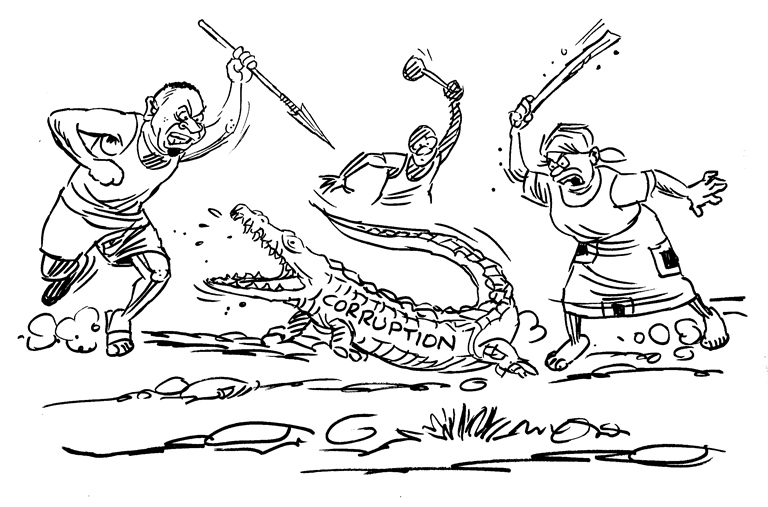‘The buck stops here’
Today’s entry features the thoughts of Dr. Edister Jamu, a representative of the Academia Pillar in the National Integrity Committee which oversees implementation of the National Anti-Corruption Strategy (NACS II). He believes that success in the fight against corruption squarely rests in decisions of ethical leadership at different levels of various institutions. He argues as follows…
Harry Truman, the 33rd US President, popularised the phrase “The buck stops here” to signal the kind of responsibility that leaders have. What this means is that whatever happens to an organisation, the undertaking one is leading rests on the leader’s shoulders. This is one of the hallmarks of true and great leadership. The leader should own up the decisions and the consequences that follow the decisions, whether good or bad. If the leader is willing to enjoy the benefits of leadership, they should also be happy to bear the brunt of mistakes occasioned in the process of leading. But how many times have we come across leaders in our organisations or communities passing the buck to someone?
It is common knowledge that in Malawi, the anti-corruption agenda takes centre stage during political campaigns. And of late, we have seen business organisations taking an interest and going as far as formulating anti-fraud or anti-corruption policies. Others have gone on to provide financial support to corruption fighting agencies. All this is in recognition of the dangers that corruption poses to society. It is also testament to that fact that our political leaders and leaders of businesses want to be seen in a positive light by the public. This is all a good and commendable thing. But our leaders should not stop there.
There is a lot more that our leaders can do to stop the rot of corruption in the societies, their tasks and organisations they lead. Key to this lies in ethical leadership. What would ethical leadership look like in the fight against corruption at all levels of our society?
Some scholars on this subject have suggested that ethical leadership requires that individuals be guided by principles and values recognised by the majority as a sound basis for the common good. Ethical leaders, therefore, demonstrate integrity, respect, trust, fairness, transparency, and honesty. Since to be ethical is a conscious decision that one makes, ethical leaders are fully aware of the principles and values that guide their leadership and they make these values visible to others, sometimes even without saying them but by consistently exhibiting ethical behaviour.
In addition to continuously signalling what they stand for through ethical behaviour, ethical leaders have zero tolerance for deviations from ethical codes of conduct. They therefore act against breaches of the ethical code of conduct because that is the only way leaders show which behaviours are not tolerated. Paying a blind eye to wrong-doing dilutes the importance of the ethical code. Once the tone that the code is not important is set, it becomes difficult for the leader to steer the ship back on to ethical waters.
Ultimately, ethical leaders walk the talk by practicing what they preach thereby holding themselves to the same standards they preach to others. When we look around us, how many of those leaders in our society, communities and organisations would live up to the high moral demands of ethical leadership?
When leaders at every level realise that true leadership is also about taking a hit for someone’s mistakes, they will begin to mentor those under their leadership in the way they should behave. The leader cannot preach ethical behaviour when they, themselves, fail to practice ethical leadership.
The importance of ethical leadership in dealing with the scourge of corruption goes without saying. NACS II, Malawi’s guiding strategy in the fight against corruption, must have envisioned the key role that ethical leadership plays in the fight against corruption when it listed, among its implementation guiding principles, professionalism, accountability, transparency, integrity and equity.




